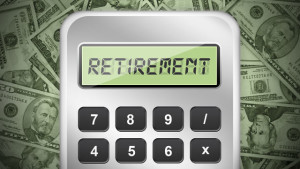 Today’s top story: Key factors to look for when evaluating your 401(k) plan. Also in the news: Banks turn to lottery-type prizes to get you to save, how to maximize your HSA in 2016, and how your student loan debt could threaten your retirement.
Today’s top story: Key factors to look for when evaluating your 401(k) plan. Also in the news: Banks turn to lottery-type prizes to get you to save, how to maximize your HSA in 2016, and how your student loan debt could threaten your retirement.
3 Key Factors When Evaluating Your 401(k) Plan
Finding a plan that works in your best interests.
Banks dangle lottery-like prizes to turn people into savers
Could a shot at a prize get you to save?
10 Ways to Maximize Your HSA in 2016
Making the most of your medical expense dollars.
How Does Your Student Loan Debt Threaten Your Retirement?
Will you still be paying back your loans into your 60’s?
How Mortgage, Auto, and Student Loan Credit Inquiries Affect Your FICO Score
Old vs new formulas.
 Today’s top story: The credit card mistakes you make every year. Also in the news: How to make a stress-free loan to your adult kids, how to bounce back from a financial setback, and the questions you should ask your employer about your 401(k).
Today’s top story: The credit card mistakes you make every year. Also in the news: How to make a stress-free loan to your adult kids, how to bounce back from a financial setback, and the questions you should ask your employer about your 401(k).  Today’s top story: What you need to know about a potential interest rate hike. Also in the news: An education tax credit that could save you $2500, how to save money on your next vacation, and how to calculate how much you’ll lose by cashing out an old 401(k).
Today’s top story: What you need to know about a potential interest rate hike. Also in the news: An education tax credit that could save you $2500, how to save money on your next vacation, and how to calculate how much you’ll lose by cashing out an old 401(k).